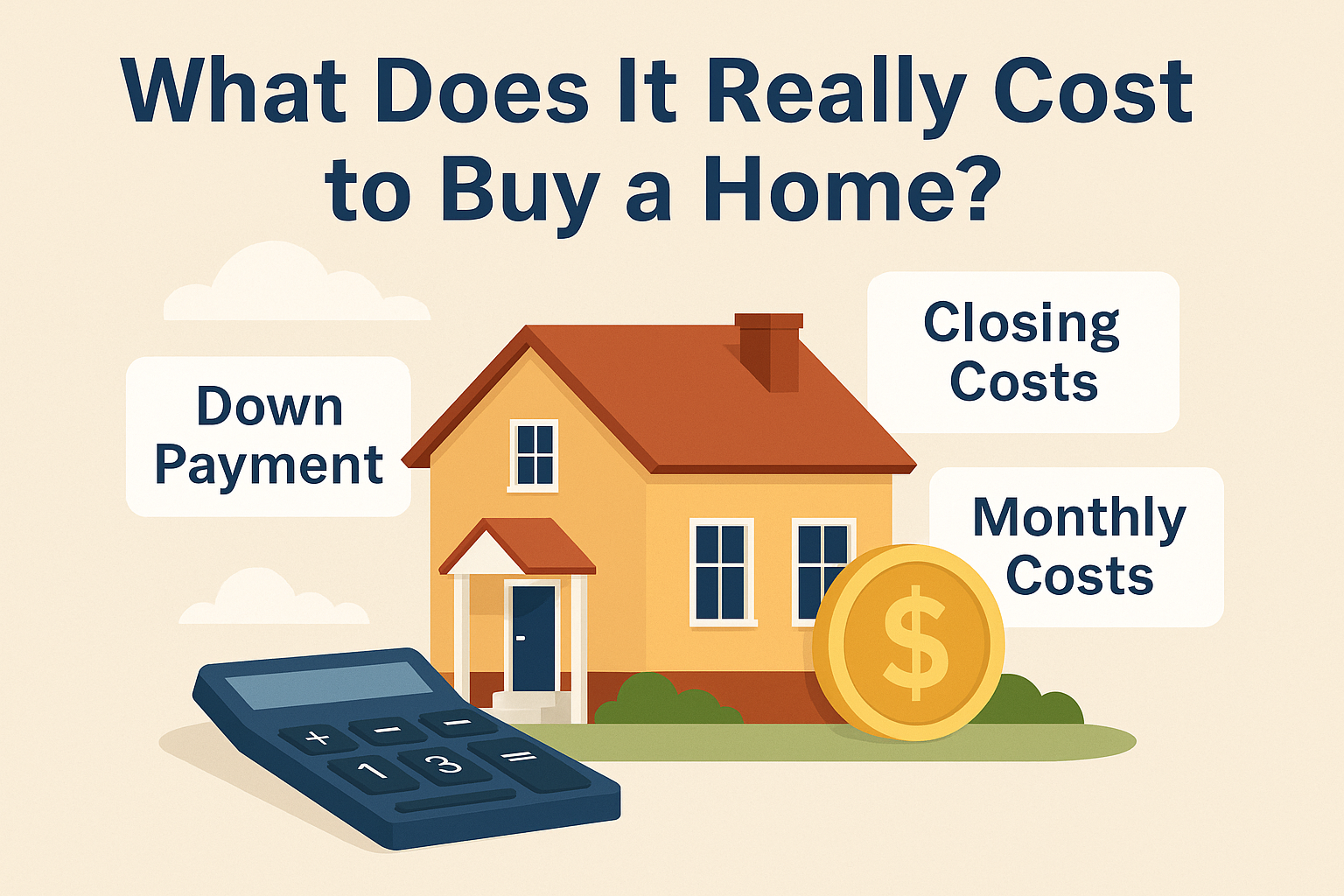What Does It Really Cost to Buy a Home? A First-Time Buyer Breakdown
For many renters in the Hampton Roads Area, the idea of buying a home can feel intimidating — especially when it comes to the upfront and hidden costs. The truth? It’s often more doable than people think — especially with the right plan and local guidance.
Here’s a breakdown of what it really costs to buy your first home.
Upfront Costs to Expect (and How to Prepare)
Yes, buying a home requires some money up front. But you might be surprised at how many options there are to make it affordable — especially for first-time buyers.
- Down Payment
You don’t need 20% down — far from it.
- Conventional Loans: As little as 3% down
- FHA Loans: 3.5% down
- VA Loans: 0% down (for eligible veterans and service members)
- Local Programs: Some offer down payment assistance or grants
Example: On a $300,000 home, a 3% down payment is $9,000.
- Earnest Money Deposit
Usually 1%–2% of the purchase price. This shows the seller you’re serious and is typically applied toward closing costs or your down payment. - Home Inspection
Budget about $400–$600. While optional, it's highly recommended to avoid surprises after moving in. - Appraisal
Most lenders require this to confirm the home’s value. Expect $500–$700. - Closing Costs
Often 2%–4% of the home’s price. These include lender fees, title charges, and other processing costs. The good news? You can sometimes negotiate to have the seller cover some or all of these costs. - Moving Costs
Whether it’s a U-Haul or professional movers, be sure to budget for this, too. Many first-time buyers plan this separately or gradually save for it during the closing process.
Ongoing Monthly Costs After You Buy
Once you're in your home, your monthly payment goes beyond just the loan. Here's what to expect:
- Mortgage Payment (Principal + Interest)
- Property Taxes (Varies by location — often rolled into the monthly payment)
- Homeowner’s Insurance
- Private Mortgage Insurance (PMI): If your down payment is under 20%, this small monthly fee protects the lender
- HOA Fees: If the home is in a neighborhood with a homeowners association
- Utilities: Often similar to what you're already paying while renting
🔍 Example: If you're paying $2,000/month in rent, that might already align with the monthly cost of owning a $300,000–$325,000 home — depending on your down payment, credit, and loan type.
Smart Extras for First-Time Buyers
Planning ahead helps make the transition smoother. Here are a few smart ways first-time buyers stay prepared:
- Home Warranty: Covers appliances, HVAC, and major systems — typically $500–$700/year.
- Emergency Fund: Even $1,000–$2,000 can go a long way for unexpected home repairs.
- Maintenance Budget: A good rule of thumb is to save 1% of your home’s value per year for routine upkeep.
Realistic Cost Snapshot — Hampton Roads Area
Let’s look at what buying a home might cost for first-timers in this market:
Scenario A — $275,000 Townhome (FHA Loan, 3.5% down)
- Down Payment: $9,625
- Closing Costs: $5,500 (can be negotiated)
- Monthly Payment: ~$1,950–$2,050 (includes mortgage, taxes, insurance)
Scenario B — $325,000 Single-Family Home (3% down Conventional)
- Down Payment: $9,750
- Closing Costs: $6,500 (can be negotiated)
- Monthly Payment: ~$2,100–$2,250
These are just estimates — your actual numbers may be better, especially if you qualify for local grants or VA financing.
Want to See What It Would Look Like for You?
Kim works closely with a local lender who specializes in first-time buyer programs — including low down payment loans and monthly payment planning.
Whether you're curious about your numbers or just want to prepare for the future, you're welcome to request a free cost breakdown.


